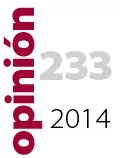The Audacity of Matteo Renzi

Roberto Toscano
Senior Research Fellow Associate
April 11, 2014 / Opinión CIDOB, n.º 233 / E-ISSN 2014-0843
No doubt about it: Italy is a unique country that is full of surprises. After decades of gerontocracy, with an older political class than other European countries and an older President than any other head of state in Europe—if not the world—now Italy has a Prime Minister who is just 39 years old, Matteo Renzi.
This phenomenon is partially explained by the apparent exasperation of its citizens with the stagnant economic state, and is characterised by a profound pessimism that verges on collective depression, and, above all, by the rejection of the politicians who have governed until now. This phenomenon is currently widespread, but the virulence and contempt in Italy surpasses that of other countries. This rejection has produced the surprising and rapid rise of an “anti-political” movement, the Five Star Movement (Movimento Cinque Stelle), the creation of Beppe Grillo, a populist comedian who has forged an unmistakable political style from hurling insults at almost 360 degrees.
Another highly characteristic phenomenon of contemporary Italian politics is its extreme personalization. In this, Silvio Berlusconi set the standard. So much so that the only “traditional” party left is the Democratic Party, heir to the double Christian Democrat tradition (in its most progressive component), as well as to ex-communist reformism. With the rise of Matteo Renzi, first to the leadership of the DP, and later to that of the government, the “democratic exception” also seems to be in the process of conforming with the prevailing personalism.
Renzi's style is so proactive, so exhibitionist and so personal that it is almost inevitable to draw a parallel with the style of Il Cavaliere (Berlusconi himself has said that Renzi reminds him of him when he was young), and he has the same tireless protagonism in the media. And the substance? To tell the truth, here the indulgence and possible personal affection that Renzi inspires in Berlusconi comes into conflict with the suspicion that the bold young Florentine may be capable—as none of the traditional centre-left politicians have been—of definitively consigning the “Berlusconi era” to history. While Renzi has given the discredited leader of the Popolo della Libertà some political approval, finalising an agreement with him on electoral reform, Berlusconi and his acolytes worry that in reality this deal ends up strengthening Renzi and further weakening Berlusconi, who is, in addition, about to be confined to house arrest (or, more likely, to hours of community service) as a way of completing his sentence for tax fraud.
Even more important than electoral reform or relations with Berlusconi is the state of the economy in a country with no growth in over ten years, which must find a way to overcome the burden of its extremely high debt. Economically, Renzi has nothing of the classical left (according to some he has nothing of the left at all) and it is not an exaggeration to draw political comparisons with Tony Blair (with whom he recently had a very warm meeting in London). But even neoliberals must take into account the limits of an austerity that risks curing the disease and killing the patient. Nobody can afford, in these times of populism and increasing anti-Europeanism, to appear to be the facilitator of the ruthless prescriptions issued by Brussels, or, better said, by Berlin.
So Renzi, always with great poise, has more than once stated that European fiscal solutions should be made more flexible. The interesting thing is that what seemed at first to be the audacity of youth, as well as the product of a lack of maturity and experience, is beginning to seem less daring than expected. In the first place, Renzi has found significant common ground with other European leaders, starting with the French President, François Hollande. More importantly, Christine Lagarde, head of traditionally the most orthodox of all organisations on fiscal matters, the International Monetary Fund, has also begun to criticise European policies that are based on the assumption (today patently absurd) that the chief enemy is still inflation. Even the extremely prudent head of the European Central Bank, Mario Draghi, has himself begun to move in this direction.
In the end, perhaps Matteo Renzi is neither as reckless not as daring as he seems. Above all, the Italian Presidency of the European Union will soon give us the opportunity to find out.